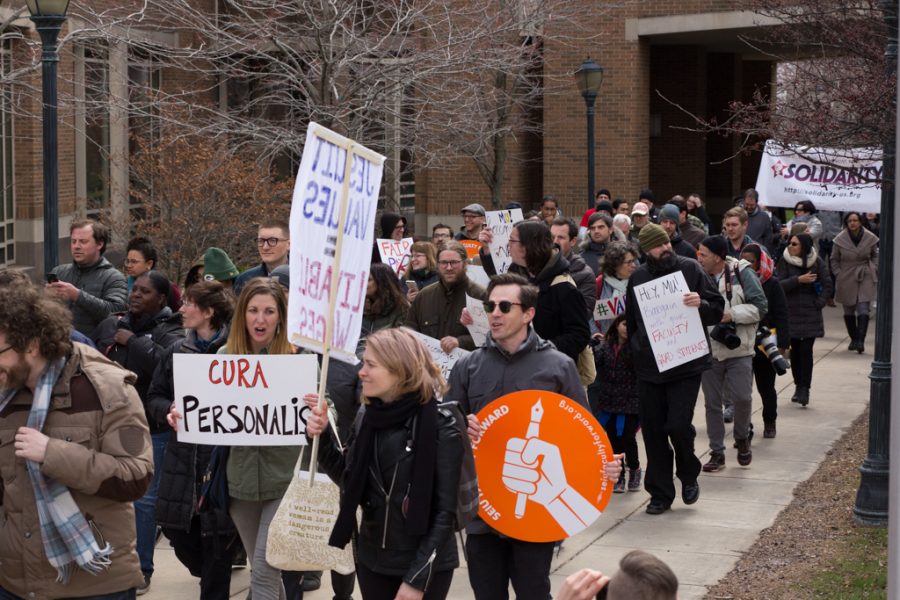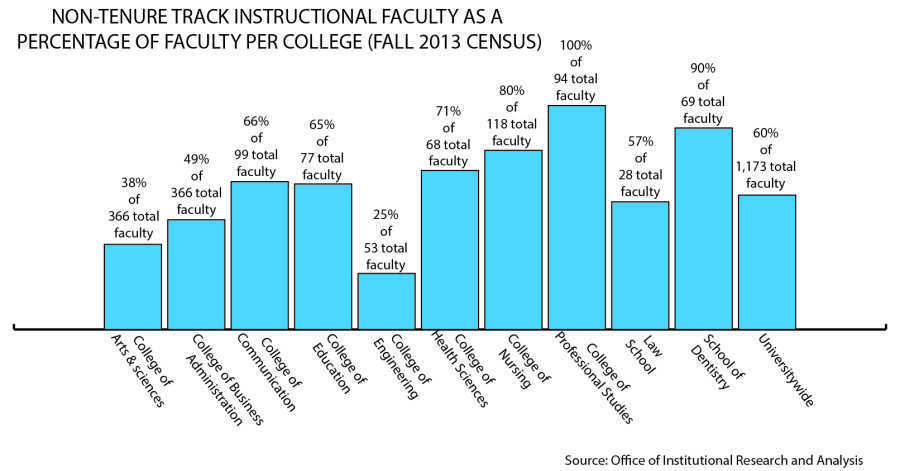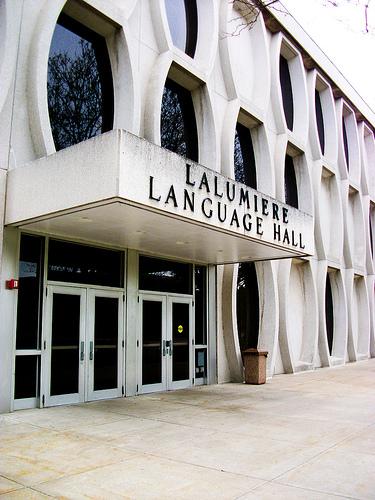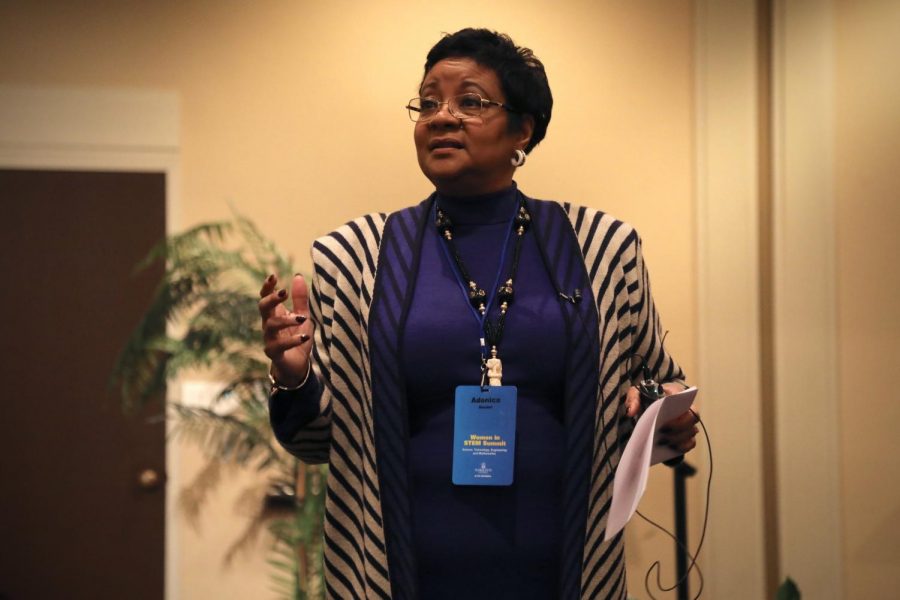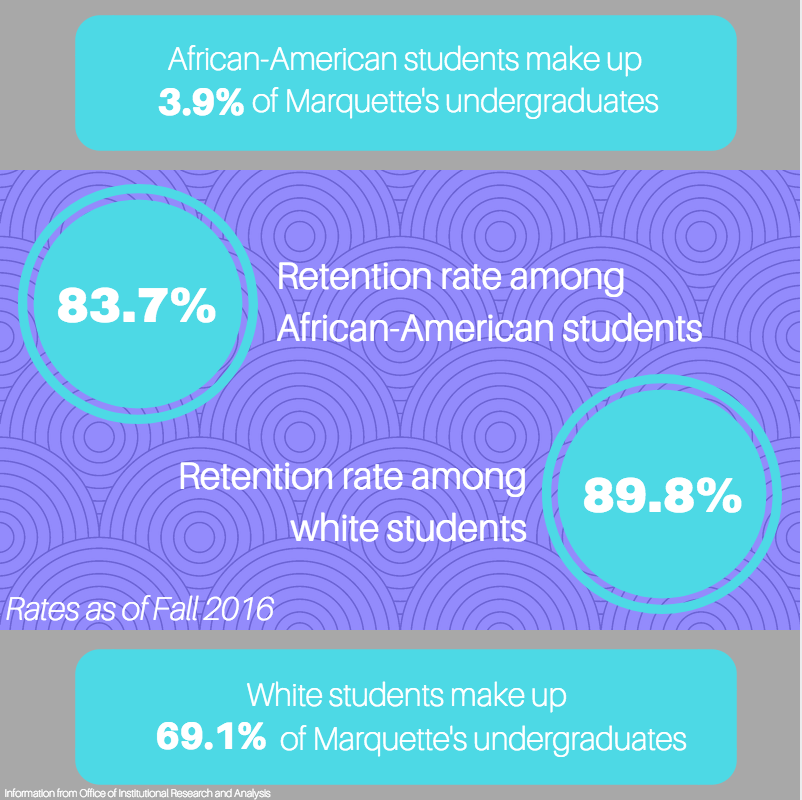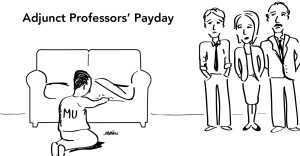
Universities across the country need to review how they treat adjunct professors and when they hire them.
Because their work at the university is part-time, adjuncts have some clear, yet limited roles to fill. Adjuncts are also necessary to fill the spaces for professors on sabbatical or to teach introductory classes based on fluctuations in the size of the student body. Business majors benefit highly from networking and interacting with teachers who work in the industry; reporting courses are well taught by working journalists; elementary education classes are bolstered by experienced school teachers; vocational studies like nursing and dentistry are well served by those who recently worked in the industry.
Beyond these functions, though, there are few exceptional circumstances from an academic perspective that justify hiring an adjunct over a tenure-track professor.
One of the key benefits of the tenure system is the security of a tenured professor’s academic freedom. Universities are society’s nexus of intellectual thought, inquisition, research and challenging institutional norms. Namely in the humanities, the best experts in the field are those who teach and conduct research within university walls.
In these areas, adjuncts do not have a definite place. In the College of Arts & Sciences, more than a quarter of faculty work part time, according to the Office of Institutional Research and Analysis. The university should recognize that the hiring of adjuncts is a nuanced endeavor and in some majors, adjuncts do not meet the standards. Adjunct faculty cannot simply act as stand-ins for tenured or tenure-track professors.
Marquette’s performance in this regard is considerably better than the national averages: 55 percent of instructional faculty are either tenured, on a tenure-track or are full-time instructors, as opposed to just 33.5 percent nationally. Though not as extreme, the inflated use of adjuncts still exists here, and its implications extend beyond the classroom.
Hiring adjuncts also risks diminishing professors’ role in wider university decisions. In a survey conducted at more than 100 research universities, The Chronicle of Higher Education found more than half of adjunct faculty had no role in faculty governance. Professors, whose very positions indicate their interests lie with student academics, run the risk of losing their voices in university decision-making if underpaid, and overworked adjuncts continue to take their place.
Aside from the role of the adjunct at a university, adjunct professors themselves face many conditions that make it difficult for them to make a lasting impact in their coursework. At Marquette, adjunct professors are paid $3,200 to $5,000 for each course they teach. They are offered few or no benefits, and to fill the gaps, they often have to find work elsewhere. Beyond unionization, this is the only way for them to earn a manageable wage.
Adjunct professors hang in the balance at the university’s judgment, and their performance is affected heavily by their wage, a factor they cannot control.
“The real concern is the quality of the students’ education,” said Edward Michael Gomeau, a lecturer in the philosophy department who has experience working as a part-time professor at universities across the country. “What are you getting for your tuition dollar? That’s really the burning question.”
Gomeau also said working multiple teaching jobs to supplement an adjunct professor’s income affects students’ educations. “Adjuncts’ living and working conditions have an adverse effect on student learning conditions,” he said.
If the university assumes the quality of an adjunct professor’s course will be equivalent to one taught by an associate professor, then this also implies an equal amount of work by the adjunct to conduct lessons, determine a syllabus and engage with students. At the very least, they are entitled to a living wage for this work. Universities need to realize the absurdity of their educators –the pillars of the institutions – working multiple jobs or living off of food stamps. Students, as well as the professors, are the ultimate beneficiaries of higher adjunct pay.
Marquette will be a stronger center of learning for reevaluating how it treats adjuncts. They either need to be afforded the same benefits and academic voice as tenured and tenure-track professors or be replaced with professors willing to be fully dedicated to the university. The value of a full-time professor, after all, extends beyond the dollars and cents.
In some ways, the debate over professorship rests between the universities’ financial and academic interests. If done properly, Marquette’s plan to implement a provost-heavy policy after selecting a new president should work in the best interest of students and professors, leading to better working conditions and compensation for adjuncts and judicious limitations on their hiring.


